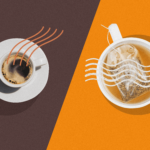Once we enter adulthood, the leisure time to do what we love can become a frivolous luxury. Between work, family responsibilities, and mounting to-do lists, where do we find the time for hobbies? The word “hobby” itself can conjure up images of retirees painting in an idyllic park, or young children riding their bikes through the neighborhood — experiences that feel out of reach.
But what if we told you that hobbies in adulthood aren’t only possible to maintain, they’re essential?
Thomas LaGrave, Jr., LCSW, founder of the Honor Bound Academy, says “Hobbies are wonderful for passing time, bringing joy, and [balancing] our life in meaningful ways.” Such activities can help us blow off steam, learn something new, maintain our well-being, and/or tap into our creative side.
Fun Hobbies You Can Try
Maybe you want to start a new hobby, but you don’t know where to start? With so many to choose from, it can be overwhelming! Here are several possible choices.
Active Hobbies
These types of hobbies get our blood pumping and can be a great way to socialize at the same time. They also allow us to get some fresh air and sunshine. Consider sports clubs (football, soccer, basketball) or fitness-based activities like yoga, rock climbing, running, or dance.
Creative Hobbies
Creativity can do wonders for the mind. In fact, it has been shown to improve stress levels and subjective well-being in adults. Creative hobbies can teach us new skills and allow us to express ourselves. Experiment with watercolors, grab a sketchbook, write a poem or short story, start a scrapbook, or try crocheting. You can even learn to play an instrument or join a theater class. The options are endless!
Community-Based Hobbies
There’s power in community and bonding over a common cause. Whether you’ve just moved to a new area or have been looking to get more involved in your hometown, these types of hobbies can be great for building connections and relieving stress. Volunteer for a cause you care about, join (or start!) a book club, or look into interest-based Meetup groups.
Unexpected Hobbies
Certain hobbies fall into more niche categories, but they can still be excellent ways to build our knowledge and step out of our comfort zones. Consider the following:
- Birdwatching
- Candlemaking or soapmaking
- Learning a new language
- Woodworking
- Filmmaking
- Learning how to do different makeup looks
Hobbies You Didn’t Know Were Hobbies
Do you have a stamp collection from childhood collecting dust in an old cupboard? A deep appreciation for grinding your own coffee beans in the morning? We can turn collections or our favorite food-related routines into their own hobbies. We might even look to skills that we’ve always been interested in learning, but haven’t gotten around to yet. These might include coding, graphic design, and cooking certain recipes.
City vs. Rural Hobbies
The types of hobbies we pursue will likely be influenced by the geographic environment in which we live. Cities have access to more community centers and interest-based groups, which can make taking classes and engaging in social hobbies easier. Rural areas, on the other hand, may be closer to trails and green spaces, making activities like hiking and gardening more feasible.
How to Start a New Hobby
Starting a hobby can come with a fair amount of friction, especially if we’re complete beginners. It’s important to start slow and manage our expectations. This can keep us from putting too much pressure on ourselves and allow us to be mindful of what we do and don’t enjoy doing.
According to Dr. Alexandra Stratyner, a Manhattan-based psychologist, we can start by buddying up. “Having someone by your side can keep you motivated, establish a sense of responsibility, and give you an added boost of fun,” she says. This can look like holding ourselves accountable to a Monday yoga class with a friend, which benefits our well-being and also gives us the chance to socialize.
Dr. Stratyner also reminds us to, above all else, have fun. “One of the biggest barriers to maintaining a hobby, especially as an adult, is the pressure we put on ourselves to be good at it or to see measurable progress,” she says. “Hobbies are meant to be fun and stress-relieving. Focusing solely on achievement can make a hobby feel more like a task or obligation than an enjoyable escape.”
Hobbies are meant to be fun and stress-relieving. Focusing solely on achievement can make a hobby feel more like a task or obligation than an enjoyable escape.
DR. ALEXANDRA STRATYNER
Check in with yourself regularly to make sure what you’re engaging in is truly enjoyable for you. If not, it’s okay to abandon it and try something else. There are plenty of options out there, it’s a matter of finding a good fit!
Why Hobbies Can Be Hard to Maintain as an Adult
Understandably, hobbies can fall to the bottom of our priorities once we reach adulthood. Here are a few common reasons why they may be difficult to start or maintain:
- Lack of time: According to Dr. Stratyner, work, family, and household tasks take precedence over personal interests for many adults. “Even when an individual is interested in a hobby, their life can be so busy with obligations that it’s hard for them to make time for leisure,” she says. “Hobbies become a luxury rather than a necessity, so they are often put on the back burner.”
- Lack of resources or access: Dr. Stratyner also points out that many hobbies require materials, tools, or travel to specific locations. Take, for example, pickleball. To get started, someone would have to purchase the right paddle and then make their way to a designated court. Not everyone has the means to make this happen (for example, if they live in an area where there are no pickleball courts, or money is tight).
- Fear of not being good enough: “The pressure to do well can keep people from trying at all,” says Dr. Stratyner. As adults, we typically have pretty high (and unrealistic!) standards for ourselves. Holding ourselves to these expectations can lead to a fear that we’ll fall short, and this is especially so when trying something new.
- Anxiety about being a beginner: We also tend to be very self-conscious when it comes to new activities, often comparing ourselves to those who are more experienced. “Adults have a pre-existing perception of competence or knowledge,” says Dr. Stratyner. “This anxiety can arise from a fear of saying something ‘dumb’ or being awkward in public, especially if the hobby is social and group-oriented.”
- Fear of rejection: As humans, we’re hardwired to seek belonging and connection. Starting a new hobby can elicit fears of criticism or rejection, especially in competitive contexts such as sports, according to Dr. Stratyner. “Someone trying a new club or class may feel anxiety about not fitting in,” she says. “This dreadfulness can make starting a new hobby sound more terrifying than pleasant.”
It’s important to remember that these fears are normal and valid — we’ve all had them! That being said, we can (and should) still try new things, or jump back into old pastimes. Everyone has been a beginner at some point, and just because we aren’t a chess champion or world-renowned artist doesn’t mean we shouldn’t pursue these activities if they bring us joy.
What Doesn’t Count as a Hobby?
It seems like so many things count as hobbies. So, what doesn’t count as one? As much as we all love to do it, scrolling social media or bingeing the latest Netflix rom-com (though they can certainly provide an escape!) don’t fall into the scope of hobbies.
While it’s typically fine to use these platforms in moderate amounts, too much can actually be detrimental to our emotional well-being.
Why Do Hobbies Matter?
LaGrave says “Now, more than ever, hobbies play a vital role in maintaining our mental health.” This is both due to unprecedented levels of mental health issues, burnout, and loneliness. “As a stopgap in addressing these types of issues,” LaGrave says, ”we find within hobbies an ability to build community, and create what are known as ‘third places.’”
According to LaGrave, third places are spaces in which people can get together outside of their homes or workplaces. Such environments (think coffee shops, parks, community centers, health/fitness centers) can surround us with people from all walks of life “in order to exchange ideas, build relationships, and share mutual interests.” Bonding with like-minded people over mutual passions can do wonders for our overall health and sense of purpose, mitigating the detrimental effects of depression, anxiety, and loneliness.
A 2022 review in Lancet Psychiatry found that leisure-based activities had several notable effects on adults’ well-being. Such benefits include the development of resilience, adoption of healthier behaviors, and formation of social support networks.
Bottom Line
Hobbies can be a helpful outlet throughout all stages of our lives. They can be especially beneficial in adulthood, when the pressures of parenting, work, and health issues can become overwhelming. With myriad potential activities to choose from, hobbies can be intellectually stimulating while safeguarding our overall well-being. Pick one today and get started! You never know where this new endeavor may lead.










